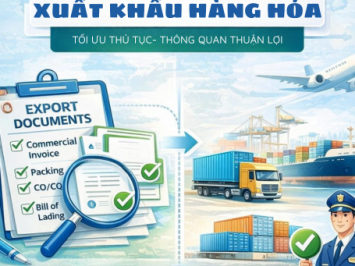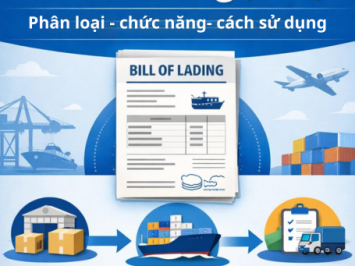Economists and trade experts call for a national-level trade risk management system to help the government and enterprises cope with economic turbulence.
Business Beat
.jpg)
Containers at the Cái Mép-Thị Vải Port Complex in southern Bà Rịa-Vũng Tàu Province. — VNA/VNS Photo Hồng Đạt
Compiled by Hoàng Anh
HÀ NỘI — According to economists and trade experts, the US government's 90-day suspension of new tariffs is more than just an export opportunity, it’s a test of strategic thinking and economic resilience.
Nguyễn Quang Huy, who is CEO of the Finance–Banking Department at Nguyễn Trãi University, described this period as a “valuable pause” – a critical time for Việt Nam to not only boost exports but also assert its position in the global value chain. Success, he said, will rely not on low labour costs, but on the country’s ability to manage risks and demonstrate strategic capacity.
Huy said that the delay signals a shift in US trade policy towards favouring responsible partners. For Việt Nam, this is a chance to deepen its integration into global supply chains by strengthening trust, refining policies and positioning itself as a reliable link.
Việt Nam can capitalise on its strengths in textiles, electronics, furniture and agro-aquatic products in this short window. The reprieve may also spur foreign direct investment from companies relocating operations away from tariff-burdened or geopolitically risky markets. Meanwhile, restructuring domestic supply chains to reduce reliance on a handful of key input markets will be vital for long-term resilience.
Chairman of Phúc Sinh Group Phan Minh Thông added that domestic enterprises need stronger policy support to compete on equal footing with exporters. He pointed to the imbalance in financing, with exporters accessing dollar loans at 1 per cent interest rate while domestic producers pay 9–10 per cent interest rates for đồng loans. Equalising access to capital, he said, would unlock local production potential.
Thông also recommended policies to stimulate consumer demand and promote domestic brands. High product quality, he argued, is essential for winning Vietnamese consumers and defending against low-quality imports that may flood the market as tariffs drop.
He also urged the Government to establish an international standard commodities exchange, ideally located in a future financial centre. Such a platform, based on Việt Nam’s export strengths, could reduce reliance on any single market and enhance global trade flows.
Economists and trade experts have warned that Việt Nam has previously been flagged as a destination for goods falsely labelled to avoid tariffs. With tightening global trade scrutiny, origin documentation and compliance transparency are essential to retain access to high-value markets like the US and EU.
Meanwhile, Việt Nam’s key export sectors remain highly dependent on imported materials, especially from Asian markets. This undermines competitiveness when input prices rise or supply chains are disrupted. Diversifying supply sources and building up domestic material zones will be key.
They called for a national-level trade risk management system to help the Government and enterprises cope with economic turbulence. This system should include scenario planning, early warning tools for geopolitical and financial risks, and modern trade defence mechanisms.
Businesses call for stronger support: GSO
A recent survey by the General Statistics Office (GSO) assessing factors impacting business operations, showed that most Vietnamese enterprises continue to face difficulties in input supply and output markets.
On the output side, low market demand and strong competition from domestic products were identified as the two most significant obstacles to production and business activities, cited by 53.9 per cent and 43.4 per cent of surveyed firms, respectively. These figures have remained relatively consistent across recent quarters, with 51.9 per cent and 42.1 per cent in Q3 2024 and 51.9 per cent and 44.3 per cent in Q4 2024.
In the construction sector, 50.7 per cent of enterprises reported difficulties, marking an increase of 6 percentage points from Q4 2024 and 5.7 points from Q3. This reflects ongoing, unresolved issues that have long plagued the sector.
As for input factors, rising costs of raw materials, fuel, storage and services remain the most pressing concerns, cited by 25.7 per cent of businesses. Access to capital was the second biggest challenge, with 17.6 per cent of firms citing difficulties, while 17.1 per cent pointed to high interest rates. Meanwhile, 18.6 per cent of manufacturing firms faced shortages of raw materials, up 0.9 percentage points from the previous quarter.
Regarding administrative procedures, 14 per cent of businesses said complex and overlapping regulations, including licensing and bidding processes, were hindering their operations. Concerning internal capacity, 6.6 per cent of enterprises admitted they were held back by outdated equipment or technology. Like output-related issues, these input challenges are not new, but have persisted for years.
To ease input cost pressures, the top recommendation from businesses is to lower interest rates, with 40.5 per cent of respondents supporting this measure. Another 31.2 per cent called for adjustments to taxes, fees and State budget contributions. Meanwhile, 17.8 per cent proposed reducing land rental costs for production and business activities.
With regard to production inputs, 24 per cent of firms urged the Government to ensure a stable supply of materials, while 30.5 per cent recommended the introduction of price stabilisation policies. To improve access to capital, 26.1 per cent of enterprises called for streamlined borrowing conditions and procedures and 25 per cent suggested shortening and simplifying administrative procedures.
For output markets, 26.2 per cent of businesses urged the Government, ministries and localities to continue implementing domestic demand stimulus measures. In addition, 19.3 per cent hoped to participate more deeply in global supply and production chains, while 18.9 per cent called for stronger trade promotion efforts and support in identifying and expanding into new markets.
Business recommendations suggested several urgent priorities for Government action. These include boosting consumption and developing the domestic market, promoting exports and maximising the potential of existing markets while diversifying into new ones, rapidly reducing administrative procedures and compliance costs, facilitating investment projects and supporting businesses in digital transformation, green transition and innovation.





















